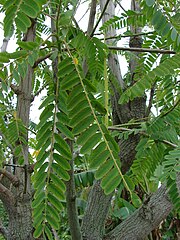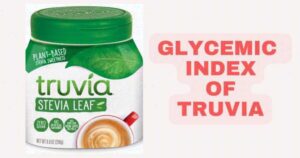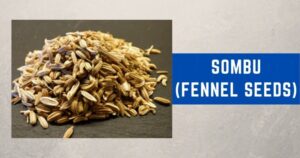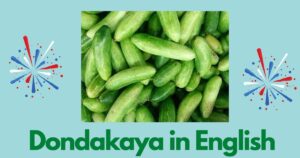Agathi Keerai in English
- English name of Agathi Keerai is “Hummingbird Tree leaves” or “Sesbania grandiflora leaves“.
Agathi keerai, also known as Hummingbird Tree leaves, is the English name for the leaves of the Sesbania grandiflora plant. In some regions, it might also be called August Tree leaves.

Agathi Keerai / Hummingbird Tree leaves
Agathi Keerai is a green leafy vegetable commonly used in South Asian and Southeast Asian cuisines. The plant is also known by various names such as Hummingbird Tree, Agati, or August Tree. The leaves are edible and are often used in traditional dishes.
Agathi Keerai is known for its nutritional benefits. It is a good source of vitamins, minerals, and antioxidants. In some cultures, the leaves are used in soups, curries, stir-fries, and other culinary preparations. Additionally, the plant is valued for its medicinal properties in traditional medicine.
It’s important to note that while Agathi Keerai has culinary and potential health benefits, individuals should be cautious if they have allergies or sensitivities to certain plants. Always ensure that the plant material is identified correctly and is safe for consumption.
History of Agathi Keerai
Agathi Keerai has a long history of cultivation and use, particularly in South and Southeast Asia. Its origins can be traced to these regions, where it has been grown for various purposes for centuries. The plant has likely been utilized for both its nutritional and medicinal properties, with the leaves and flowers being incorporated into traditional dishes and remedies.
The exact historical details might vary based on the specific cultural and regional contexts, but Sesbania grandiflora has been integrated into local agriculture and culinary practices for generations.
Geographical Distribution
Agathi Keerai is native to South Asia, including countries like India, Bangladesh, Sri Lanka, and Myanmar. Over time, it has been introduced to and naturalized in various tropical and subtropical regions worldwide. The plant is well adapted to warm climates and is often found in areas with high rainfall.
As it is a hardy and fast-growing plant, it can thrive in different soil types, making it suitable for cultivation in diverse environments. However, its introduction to new regions should be monitored to prevent it from becoming invasive.
Agathi Keerai Benefits
Here are some potential health benefits associated with Agathi Keerai (Sesbania grandiflora leaves):
- Nutrient-Rich: Agathi Keerai is a good source of essential nutrients, including vitamins (A, B, C), minerals (calcium, iron), and antioxidants.
- Aids Digestion: The fiber content in Agathi Keerai can contribute to digestive health by promoting regular bowel movements and preventing constipation.
- Anti-inflammatory Properties: The leaves may have anti-inflammatory properties, potentially assisting in managing inflammatory conditions.
- Boosts Immunity: The presence of vitamins and antioxidants in Agathi Keerai can help boost the immune system, providing protection against infections and illnesses.
- Blood Purification: Some traditional practices suggest that Agathi Keerai can aid in blood purification, helping to detoxify the body.
- Potential Anti-Diabetic Effects: There is some research suggesting that Agathi Keerai may have anti-diabetic properties by helping to regulate blood sugar levels.
- Improves Bone Health: The presence of minerals such as calcium contributes to the promotion of strong and healthy bones.
- Supports Vision Health: The vitamin A content in Agathi Keerai is beneficial for maintaining good eyesight and overall vision health.
- Anti-microbial Properties: Some studies indicate that Agathi Keerai may have antimicrobial properties, which could contribute to its role in traditional medicine.
- Anti-Cancer Potential: While research is ongoing, certain compounds found in Agathi Keerai are being investigated for their potential anti-cancer properties.
- Anti-Anemic Properties: The presence of iron in Agathi Keerai may contribute to preventing or alleviating iron-deficiency anemia.
- Regulates Blood Pressure: Some studies suggest that the potassium content in Agathi Keerai may help regulate blood pressure levels.
- Anti-Aging Effects: Antioxidants in Agathi Keerai may help combat oxidative stress, potentially slowing down the aging process.
- Anti-Asthmatic Properties: Traditional medicine practices in some cultures use Agathi Keerai for its potential anti-asthmatic effects.
- Rich in Protein: The leaves contain a moderate amount of protein, making them a valuable addition to vegetarian or plant-based diets.
- Aids Weight Management: The fiber content and low calorie count in Agathi Keerai may support weight management efforts by promoting a feeling of fullness.
- Lactation Support: In some cultures, Agathi Keerai is believed to have properties that support lactation in breastfeeding mothers.
- Anti-Inflammatory Effects: Compounds in Agathi Keerai may help reduce inflammation, which is associated with various chronic conditions.
- Cardiovascular Health: The combination of antioxidants, potassium, and other nutrients may contribute to heart health by supporting proper functioning and reducing the risk of cardiovascular diseases.
- Hair and Skin Health: The vitamins and antioxidants present in Agathi Keerai may have positive effects on hair and skin health, contributing to a radiant complexion and strong, shiny hair.








